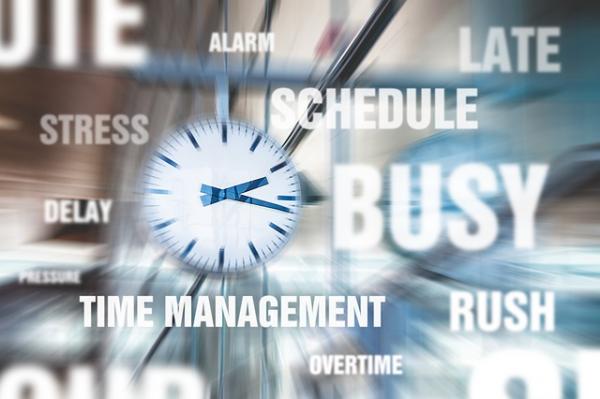This is Day Five of the 2018 #30Days30Writers Ramadan series.
Stores are bustling with shoppers who are looking for the freshest of dates, the softest of cakes and assorted coffees and teas. Houses are being decorated, suhoors and iftars planned, houses cleaned and recipes shared. There is a hint of awe and wonder looming in the air. So much beauty in this blessed month of the descent of the Quran — Ramadan. And, lurking somewhere behind the excitement is anxiety — anxiety of Ramadan failure.
Questions of doubt begin to swirl in your head: Will I be enough at the end of Ramadan? Will I have grown, at least some? Did I do enough? These questions and more may have you feeling hopeless and ungrateful. The reason behind these feelings are the expectations one may have in preparing for Ramadan when instead the reality of your life kicks in.
Your current life does not take a break. Although now you must include going to the masjid, waking up for suhoor, keeping the children busy, sadaqa, iftar, cleaning the masjid, delivering food to the homeless and whatever other added responsibilities we pile on our plates during Ramadan, only to end up barely keeping with the fast.
What I propose is a priority fast. A priority fast is when you keep to the activities that are most important to you and not to everyone else. Practice Islam within your frame of obedience and increase your deeds at a suitable pace set by your spiritual needs.
Regarding fulfilling the obligations of the fast — abstaining from food and drink, refraining from sex—this should be among the top priorities. Everything else is extra credit. Lay a firm foundation and build upon it deed by deed. You will find that you are not only meeting your fasting goals but increasing in your overall ibadah (worship).
You have 30 days to maximize the benefits of Ramadan. And, although that is a short amount of time in terms of exerting yourself, it is also just enough time to lay the foundation for long-term changes. You can use this time to work on your most troublesome areas of worship, and then you can move on to charitable works.
Plan out what you want most from your Ramadan. Everyone is posting and pledging their Ramadan intentions, and it appears as if they are going to be accomplishing huge tasks. But the reality is we are all struggling in someone ways. Social media makes it difficult for the brain to decipher between the reality and façade. We confuse what everyone says they are going to do during Ramadan with the reality of the implementation of said goals.
That can leave us feeling defeated. To avoid the confusion, you must be clear about what you need in your life and how you will go about achieving it. If you want to increase your prayer, then pray all the sunnah prayers before and after the fard (obligatory) salah for the first ten days. If you want to add more prayer, then you should try adding tarawih and witr, but if you struggle to make the five obligatory prayers, jumping into tarawih and witr will be counterproductive.
Next, we want to focus on doing good deeds. Now, this is my favorite part because year after year people get inundated with performing extra-charitable deeds outside of the home. However, charity starts at home. Parents fuss with their children, argue with their spouses, neglect their parents, then go to the masjid and feed the people. Is it logical that someone benefits from your kindness other than your family?
Take this time to reconnect with your family: Pray together, breakfast together, let someone other than yourself make choices about meals, or activities during Ramadan. If you have an established good relationship with your family, then feel free to continue building the bond by feeding the homeless, hosting an iftar for fasting Muslims, or allowing the children to choose to whom they will give sadaqa. The mission is to be kind to your family first and build a strong bond at home then give the overflow to strangers.
Another pressing issue during Ramadan is health: Long fasting days, late night suppers, early suhoor, there’s seems like there isn’t any time for anything else other than fasting and praying and then trying to squeeze food and sleep between the two. Over the years, I have collected some practical advice on both matters.
Let’s look at sleep; the first thing that most people complain about is the lack of sleep. Isha prayer for a good majority is late in the evening; then comes tarawih around 9:30 – 10 p.m., which may not be completed until 11:30 p.m. or later. You set your alarm for suhoor around 4 a.m., then after eating you sit and wait for fajr.
I propose some sleep hacks to ease the hardship of fasting:
- Learn your sleep cycle and set the alarm to it. If you wake up at the proper point in your sleep cycle, you reduce the chance of grogginess. You can serve yourself and your family better if you get the proper amount of sleep.
- Take a power nap. Napping between dhur-asr time is sunnah, and it’s good for you. The sunnah/power nap will rejuvenate you and give you energy. It doesn’t have to be a two-hour nap; 20 minutes is sufficient. Find a spot, throw your head back and nap.
- Take a power nap between Isha and tarawih. I have found that just closing my eyes for a few minutes is rejuvenating. But, never nap at asr time; it will make you angry and groggier than you were before the nap.
Then there is the issue of nutrition. I hear it year after year: This Ramadan I am going to lose weight. And some folks do lose weight. However, that should not be the focus of your fast. You should focus your nutrition on being balanced like the rest of your ibadah.
- Do not skimp on eating. If you skip out on eating enough food, you will lose energy before half the day of fasting is done. If you continue with that behavior, you will lose vigor for Ramadan in its entirety.
- Make it your mission to stay hydrated as much as possible. Water is your best friend in Ramadan. The days are long, and you are likely to feel thirst before you feel hunger.
- Avoid over-consumption at iftar and suhoor. Eating too much food is as harmful to your fast as not eating enough. Your body will be sluggish and tired.
- If you desire to exercise, don’t overdo it. If you exert all your energy to exercising, then you won’t have much left for your prayer goals. Again, the key is to stay balanced.
Let’s recap:
To have a beneficial and prosperous priority fast, you will need to be clear about your goals and intentions for Ramadan; focus on the fulfilling the obligations of Ramadan. Do not exert yourself to the point of burnout. Use this time as a springboard to increase your overall ibadah.
Be gracious with your charity to your family, but most importantly, take care of yourself. The primary goal is to be balanced in your religion and maximize the blessings of this precious gem called Ramadan.
Ramadan Mubarak!













